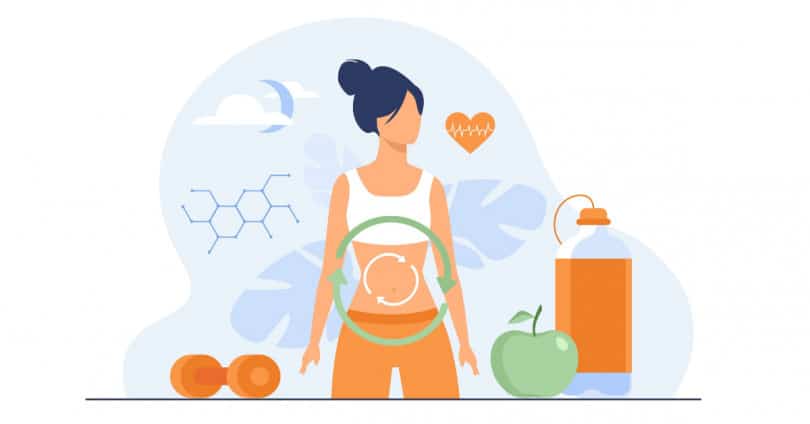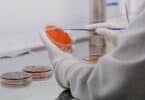Did you ask yourself before what happens to the food you eat? First: it passes through the esophagus. It moves by a wave of muscle contractions that squeeze the food down at about 2 inches per second when the food, it into a churning pool of digestive juices, in the stomach the food is broken in to easily absorbable ingredients protein, sugars, and fats.
In general, food takes from 24 to 72 hours to move through your digestive tract. the exact time depends on the amount and types of foods you have eaten. The rate also depends on factors like male or female metabolism and if you have any digestive issues that could decrease the speed of the process.
Digestion time differs among individuals and between men and women. After you eat, it takes about 6 to 8 hours for food to pass through your stomach and small intestine.
Food at that point enters your large intestine (colon) for further digestion, absorption of water and, finally, elimination of undigested food. It takes about 36 hours for food to move through the entire colon. The whole process from the time you swallow food to the time it leaves your body as feces takes about 2 to 5 days, depending on the individual.
The digestive rate based also on what kind of food did you eat? Fish or meat.
Fish and meat could take two days to digest but proteins and fats could take a longer time to fully digest.
Fruits and vegetables which are high in fiber can move through your system in less than a day. In fact, these high fiber foods help your digestive track run more efficiently in general
At first, food travels relatively quickly through your digestive system, for 6 or 8 hours. The food has moved its way through the stomach, small intestine, and large intestine.
The range for transit time includes the following gastric emptying (2 to 5 hours), small bowel transit from (2 to 6 hours) colonic transit (10 to 59 hours), and whole gut transit (10 to 73 hours)
What is Digestion?
Digestion is the process by which food is broken down into nutrients that your body can use. It begins in your mouth and ends at the end of your terminal ileum (small intestine). The process begins with seeing and smelling food. As a result, your body makes more saliva, which contains enzymes that begin digestion.
After the food has been chewed and swallowed, the real work begins in the stomach. The food mixes with the digestive juices in your stomach, resulting in a watery concoction that passes into the small bowel. The small bowel’s walls absorb needed nutrients and water, the colon (large bowel) then takes what your body didn’t use and prepares to get rid of it through a bowel movement.
What happens during digestion?
Food is digested in the mouth, stomach, and intestine. Digested food is absorbed into the bloodstream in the small intestine. Excess water is absorbed back to the body in the large intestine, any undigested food passes out of the anus.
Digestion is the process by which the body breaks down food and pulls out the nutrients your body needs to operate. Anything left is a waste product which your body removes
The digestive system consists of 5 parts:
1-Mouth
2-Esophagus
3-Small intestine.
4-Large intestine.
5-Stomach.
What happens when you digest food?
When you chew, glands in your mouth release saliva. this digestive liquid contains enzymes that break down the starches in your food.
When you swallow, the food moves down your esophagus. the pipe that connects your mouth to your stomach. a muscular gate called the lower esophageal sphincter opens to let the food move into your stomach.
The acids inside your stomach break down the food more than you imagine and that produces a mixture called chyme and this mixture moves inside your intestine.
In the small intestine, your pancreas and liver contribute their own digestive juices to the mix.
Pancreatic juices break down carbohydrates, fats, and proteins. The undigested part that remains moves on to your large intestine.
Note:
Pancreatic juices break down carbohydrates, fats, and proteins. Bile from gallbladder dissolves fat, vitamins, other nutrients and water move through the walls of your small intestine into your bloodstream. The undigested part that remains moves on to your large intestine.
Digestive problems
1-Bleeding.
2-Bloating.
3-Constipation.
4-Diarrhea.
5-Heartburn.
6-Vomiting.
7-Pain in the belly.
8-Swallowing problems.
9-Weight gain or loss.
A digestive disease in any health problem that occurs in the digestive tract. Conditions may range from mild to serious some common problems include heartburn, cancer, Irritable bowel syndrome, and lactose intolerance.
More digestive diseases
1-Cholecystitis and cholangitis.
2-Stomach problems.
3-Esophagus problems.
4-Liver problems including gastritis
5-Rectal problems such as anal fissure.
6-Acid reflux
7-Irritable bowel syndrome.
8-Lactose intolerance.
9-Celiac disease.
Tips for better digestive
To keep your digestive system healthy and avoid some diseases such as (diarrhea- constipation), try these tips:
1-Eat more greens, fruits and whole grains (vegetables, fruits, and whole grains are full of fiber)
2-Avoid to eat meat a lot because that leads to heart diseases.
3-Add probiotics to your diet. This helps you to take out harmful bugs in your digestive tract.
4-Do more exercise. Moving your body keeps your digestive health.
5-Sleep 8 hours per day.
6-Drink more water.
7-Manage stress: avoid any stress and keep yourself relaxed.
8-Take away: Watch out what you eat to keep your digestive system very safe.
See Also
High Blood Sugar in the morning









